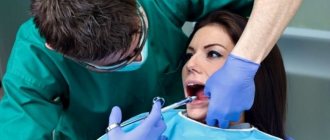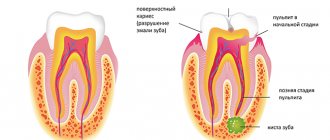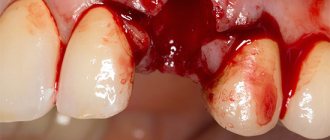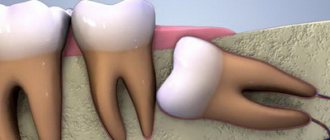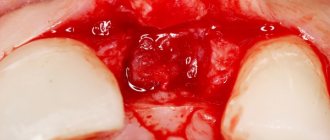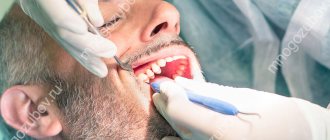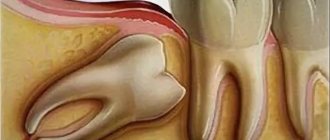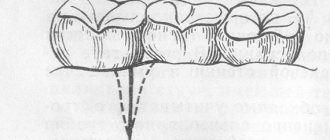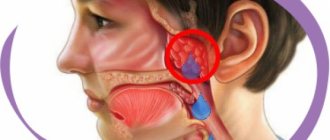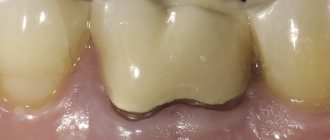Do they open clinics in dentistry and for how many days?
Five cases in which sick leave is opened:
- problematic molar removal, during which the doctor is forced to drill into bone tissue or remove part of the gum;
- medical error that led to unpleasant consequences;
- allergic reactions to drugs used in treatment;
- infection of the tissue around the tooth, which began before the operation;
- feeling unwell after the procedures.
The issuance of sick leave will be refused if the operation was completed without complications. Moreover, if a person had an ordinary tooth removed, and not a wisdom tooth, then complications arise in especially extreme cases. Basically, this could be a medical error or an allergic reaction.
Issuance of sick leave after wisdom tooth extraction and other dental procedures
However, there are still some nuances.
When applying for sick leave, they are guided by the developed form of the certificate of incapacity for work and the relevant legislative acts
The procedure for registering sick leave is regulated by the following legislative acts:
- Article 183 of the Labor Code. According to this article, during an illness, an employee may not go to work and not perform his job duties, without losing his salary and seniority. In addition, he can also receive additional social guarantees during his illness
- Federal Law No. 255 dated December 29, 2006. The article spells out the responsibilities that must be fulfilled by employers and employees of the enterprise, employees of the Social Insurance Fund and medical institutions regarding the issuance of sick leave.
- Order of the Ministry of Health No. 624n dated June 29, 2011. It provides legal regulation of the general procedure for issuing sick leave and standards that determine the period when an employee is considered temporarily disabled and may be on sick leave
- Decree of the Government of the Russian Federation No. 375 of June 15, 2007. It sets out the general procedure for calculating payments for the period when the employee was on sick leave. We are talking about persons participating in the social insurance system
- Order of the Ministry of Health of the Russian Federation No. 347n dated April 26, 2011. The document spells out the form of sick leave that doctors prescribe to patients, the rules for their execution and other nuances of document management of this kind.
Most dental procedures are performed without sick leave. Treatment takes little time, and the intervention is not so traumatic as to send the patient to sick leave.
Is the bulletin required when visiting a dentist?
Modern dentistry is well developed, so in most cases there are no unpleasant consequences after operations. Still, it cannot be guaranteed that tooth extraction will take place without problems, so doctors advise obtaining a certificate of incapacity for work in order to rest peacefully after the operation. But it is not always possible to draw up a document.
5 cases when a ballot is issued:
- Problems arise with molar removal. The doctor has to drill into the bone tissue or partially remove the gum. Such operations are often performed when the tooth has not fully erupted.
- A medical error has been made. Even an experienced doctor can make a mistake, which will lead to unpleasant consequences.
- The patient developed an allergic reaction to the drug. Often a person does not realize that he is intolerant to certain components of the medicine. Therefore, there is a reaction in the form of malaise or swelling. Sometimes hospital treatment may be required.
- Before the operation began, an infectious infection of the tissue around the tooth occurred. Do not delay visiting the dental clinic. Soft tissues are damaged while the tooth grows. This fact leads to infection occurring. You may need emergency medical attention.
Sick leave for tooth extraction is necessary for emergency surgery because the dentist did not provide the necessary preparation. After the removal of a wisdom tooth, a bulletin is issued for the entire period of inpatient treatment.
- The person does not feel well after the procedures, so a sick leave is required upon removal. Adverse consequences occur if hygiene is not maintained after removal.
An unfavorable consequence of the operation is a rise in temperature, swelling of the cheeks or gums. These reasons are enough for the dentist to give you a sick leave.
So, the reasons listed are enough to answer positively the question, is sick leave given for tooth extraction? The operation itself is not a reason to exempt a person from going to work. If complications arise, sick leave is issued.
To obtain the document you need to see a doctor. You need to have your passport with you. The forms are made on special paper with special watermarks. This precaution allows you to protect against document forgery. The document form was approved by the Ministry of Health and Social Development (Order No. 347n).
How to choose a doctor?
Before treating your teeth, be sure to find out all the possible information about the clinic and the qualifications of the dentist, as well as the availability of the necessary medications and equipment.
All manipulation of your teeth should be performed by a dentist with experience in surgical interventions - ideally a specialist in oral and maxillofacial dental surgery.
Cost also plays an important role - check the price and possible changes in the final amount in case of unforeseen complications. If they refused to provide you with the above information, this is a reason to seriously think about whether you should contact such a clinic and trust pseudo-doctors.
Cost also plays an important role - check the price and possible changes in the final amount in case of unforeseen complications. If they refused to provide you with the above information, this is a reason to seriously think about whether you should contact such a clinic and trust pseudo-doctors.
Is the bulletin required when visiting a dentist?
Modern dentistry is well developed, so in most cases there are no unpleasant consequences after operations.
Still, it cannot be guaranteed that tooth extraction will take place without problems, so doctors advise obtaining a certificate of incapacity for work in order to rest peacefully after the operation. But it is not always possible to draw up a document. 5 cases when a ballot is issued:
- Problems arise with molar removal. The doctor has to drill into the bone tissue or partially remove the gum. Such operations are often performed when the tooth has not fully erupted.
- A medical error has been made. Even an experienced doctor can make a mistake, which will lead to unpleasant consequences.
- The patient developed an allergic reaction to the drug. Often a person does not realize that he is intolerant to certain components of the medicine. Therefore, there is a reaction in the form of malaise or swelling. Sometimes hospital treatment may be required.
- Before the operation began, an infectious infection of the tissue around the tooth occurred. Do not delay visiting the dental clinic. Soft tissues are damaged while the tooth grows. This fact leads to infection occurring. You may need emergency medical attention.
Sick leave for tooth extraction is necessary for emergency surgery because the dentist did not provide the necessary preparation. After the removal of a wisdom tooth, a bulletin is issued for the entire period of inpatient treatment.
- The person does not feel well after the procedures, so a sick leave is required upon removal. Adverse consequences occur if hygiene is not maintained after removal.
An unfavorable consequence of the operation is a rise in temperature, swelling of the cheeks or gums. These reasons are enough for the dentist to give you a sick leave.
So, the reasons listed are enough to answer positively the question, is sick leave given for tooth extraction? The operation itself is not a reason to exempt a person from going to work. If complications arise, sick leave is issued.
Is sick leave given for tooth extraction, prosthetics, toothache?
The question of whether sick leave is given when removing a wisdom tooth or other teeth is relevant for many Russian citizens. After all, dentistry has certain specific legal regulations - therefore, both employees and employers should know whether sick leave is given for dental treatment, toothache or prosthetics. Otherwise, ignorance of the procedure for providing sick leave during tooth extraction can lead to unpleasant consequences for both the employee and the employer.
Duration for which the document is opened
The patient's health status affects the timing of document opening. If a person does not feel well after surgery, the rest period is extended after visiting the doctor. Dentists are mid-level medical specialists, and therefore have the right to issue a bulletin for five days. Therapists issue documents on incapacity for work for a period of ten to thirty days.
Important! Often the newsletter is issued by a general practitioner instead of a dentist. For this reason, in the “diagnosis” column there is no indication of surgery to remove a wisdom tooth.
The employer is being disingenuous if he says that only doctors at a state clinic can be released from work. The certificate can be issued by specialists from a private clinic. The main thing is that the organization has a license to provide medical services and conduct an examination of temporary disability (clause 2 of Order No. 624n).
Therefore, you can have a tooth removed in any clinic where it is convenient.
In what cases is sick leave given and in what cases is it not?
Expert opinion
Polyakov Pyotr Borisovich
Lawyer with 6 years of experience. Specialization: civil law. More than 3 years of experience in drafting contracts.
If a person feels unwell after the procedure, then the dentist prescribes sick leave for him. In other cases, you can contact your local therapist to obtain release from work.
Dentists issue sick leave certificates if a person temporarily loses his ability to work, the reasons may be as follows:
- carrying out a complex operation, after which a rehabilitation period is necessary;
- Complications arose after the procedure.
Often sick leave is issued to pregnant women. Dental surgery is stressful for the body. Women carrying a child may react more acutely to these manipulations and the drugs used.
They need rest to recover after the procedure. Thanks to the development of dental technology, most procedures today are performed painlessly, and recovery is fairly quick. Therefore, most often a visit to the dentist does not require a certificate of incapacity for work.
Typically, people turn to dentists with the following problems:
- severe toothache;
- flux;
- the need to remove the bone unit of the jaw.
Many patients have a question whether the doctor can give an exemption from work in the presence of such dental problems. The decision is made by the doctor based on the severity of the patient’s condition.
Severe toothache
Toothache causes considerable discomfort. It greatly reduces performance. This unpleasant sensation can accompany many dental problems.
Common causes of discomfort:
- advanced caries;
- inflammation of the gums, nerve;
- eruption of wisdom teeth.
Most often, unpleasant sensations appear against the background of carious lesions. In addition to severe pain, the patient may experience fainting conditions and a rise in temperature.
In this case, the person cannot work normally, so he is issued a certificate of temporary incapacity for work. Dentists strive to save a damaged tooth.
But there are times when it is necessary to pull out the bone element of the jaw. Many patients ask whether sick leave is given after tooth extraction. It is difficult to give a definite answer. It all depends on the patient’s well-being and the success of the manipulation.
Flux is a purulent inflammation of the periosteum near the tooth root, which causes a lump to form. The condition is quite dangerous. Depending on the form of development, this disease can be acute or chronic. According to the type of course, purulent and bacterial forms of pathology are distinguished. The main reason for the development of flux is infection.
This is important to know: Is the army included in the length of service for sick leave?
Also, a purulent-inflammatory process can be a consequence of the following conditions:
- untreated caries;
- injury to the gums and teeth;
- angina;
- furunculosis;
- neglect of oral hygiene;
- spread of the pathogen from other infected areas through the lymph or bloodstream.
Flux manifests itself with the following unpleasant symptoms:
- redness of the gums. Occurs due to inflammation of soft tissues;
- soreness of the affected tooth. Unpleasant sensations are pronounced. The pain can radiate to the jaw, head, neck. When chewing, pressing, or putting pressure on the tooth, the discomfort increases;
- severe swelling;
- increase in body temperature. This leads to headache, weakness, aches, nausea;
- enlargement of lymph nodes located near the affected tooth.
All these symptoms greatly reduce performance. Therefore, there is no doubt about whether sick leave is given for flux. This condition requires urgent treatment. At an early stage, antibiotics and anti-inflammatory drugs are used. But as a rule, people go to the doctor if they have an advanced condition.
In severe cases, surgery is necessary. If the patient feels unwell due to flux, he is at risk of developing sepsis, then the dentist writes him a certificate of temporary incapacity for work.
Expert opinion
Polyakov Pyotr Borisovich
Lawyer with 6 years of experience. Specialization: civil law. More than 3 years of experience in drafting contracts.
After opening the abscess, a person may develop a fever. Therefore, the doctor must monitor the patient for at least three days.
This will help prevent the spread of infection in time.
Removal of a tooth
Tooth extraction is a common dental procedure. It is performed in the presence of discomfort, severe destruction of the bone unit of the jaw, and also before carrying out some orthodontic manipulations. In most cases, tooth extraction is an elective procedure.
Many dental clinics are open not only on weekdays, but also on weekends. Therefore, a person can sign up for surgery on Saturday in order to have a couple of days to recover. But there are cases when the procedure needs to be carried out quickly.
Indications for urgent tooth extraction:
- the presence of a cyst at the root apex;
- longitudinal tooth fracture;
- the bone element of the jaw became the cause of odontogenic osteomyelitis;
- the tooth is a source of infection and inflammation;
- transverse crown fracture.
The tooth extraction operation itself is considered simple. Therefore, it is not a reason for issuing a temporary disability bulletin. Exemption from work may be issued if the patient’s well-being worsens after the procedure.
The dentist writes out a sick leave after tooth extraction in the following cases:
- complications occurred after the operation (severe bleeding, hyperthermia due to infection);
- tooth extraction was difficult. The doctor had to prepare the bone tissue and cut out part of the gum. Such manipulations are carried out when the tooth has not fully erupted. Most often, problems arise with the removal of the last molars. After a major operation, a person experiences severe pain. The patient needs time to recover;
- a medical error was committed, which entailed a number of serious consequences;
- The patient developed a severe allergic reaction to the anesthesia. Most people do not even realize that they are intolerant to a particular drug. Not all dentists do a selection of painkillers and a drug allergy test before surgery.
How to get a newsletter
To obtain the document you need to see a doctor. You need to have your passport with you. The forms are made on special paper with special watermarks. This precaution allows you to protect against document forgery. The document form was approved by the Ministry of Health and Social Development (Order No. 347n).
Only a clinic that has a license for medical activities has the right to issue a newsletter. Blood transfusion stations and emergency doctors do not have the right to issue documents of incapacity for work.
If a person sees a doctor on a working day, it is better to ask for a newsletter to be issued from the next day so that there are no problems with payment.
How long does the postoperative period last?
After the operation to remove the figure eight, after 10 minutes you need to remove the cotton swab applied by the doctor so as not to cause an infection. During the first three days, you should strictly follow your dentist's instructions. At the same time, it is not at all necessary to lie down in bed - you can go about your daily activities, but adjusted for medical recommendations. After 2-3 days, as a rule, the doctor prescribes a preventive examination to examine the wound and understand how it is healing.
Recovery time is different for everyone - it depends on a number of factors. For example, on the patient’s age, the body’s ability to regenerate and many others. The question of how long the period after surgery lasts is individual.
Summary
- A sick leave certificate for the removal of a wisdom tooth can be issued by a dentist or general practitioner.
- A dentist can take a leave of absence from work for five days, and a general practitioner can take a leave of absence for up to thirty days.
- In most cases, work release is issued by a therapist.
- For sick leave, special paper with watermarks is used.
- Payment for a certificate of incapacity for work depends on two years’ earnings and length of service.
- You can ask for a certificate at a private or public hospital. The main thing is that the clinic has a license to provide medical services.
Estimated duration of disability
A dentist belongs to mid-level medical specialists. Therefore, he does not have the right to issue sick leave for a long time.
The maximum period for which a doctor can grant leave from work for outpatient treatment is five days . Therapists issue sick leave for a period of up to two weeks. If therapy is carried out in a hospital setting, then it is difficult to predict how long a person will be disabled.
It all depends on the type of pathology, the severity of the patient’s condition, and the effectiveness of the therapy. A certificate of temporary disability can be issued on the day of the visit if the teeth are treated in one appointment, but the workload is large.
If several visits to the doctor are necessary to complete a course of therapy, then intermittent sick leave is issued (for the days of the visit). Thus, the dentist has the right to issue a certificate of temporary incapacity for work. Sick leave is required in cases where the manipulation was difficult and the person has complications. Exemption from work is given for a period of up to five days. Then the therapist extends it.

